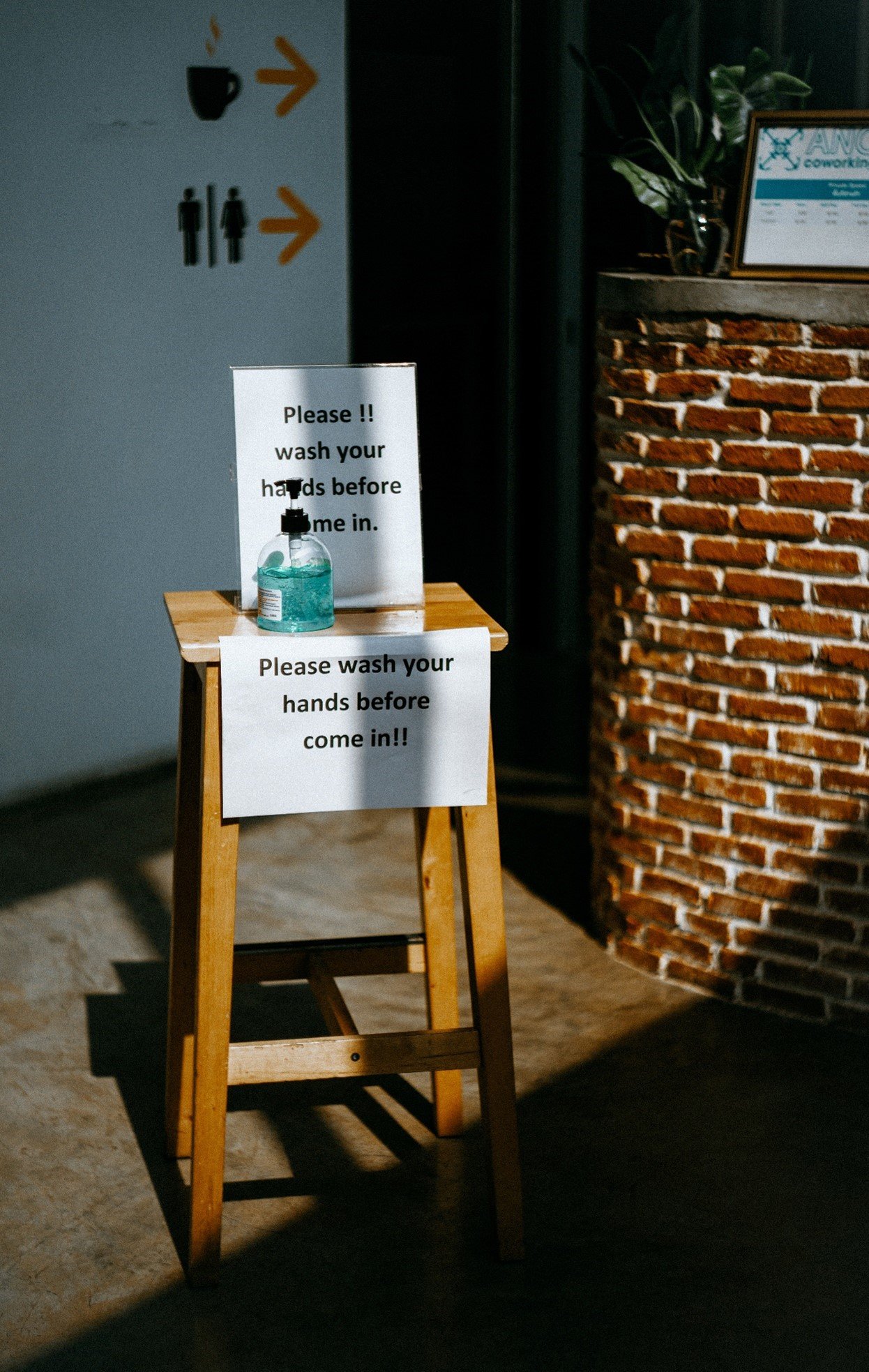Interesting Coworking Sites
CoWorking spaces in the UK and Germany have responded to the pandemic in different ways. Below are four case studies exploring how local coworking spaces have navigated their way through the 2020 global pandemic to remain viable.
CAPTION: Some Coworking Spaces have thrived through the pandemic (Photo by Kseniia Ilinykh on Unsplash)
Good Space, Kilburn, North West London, UK
Good Space was started by American couple David and Ashley in the north west suburb of London, Kilburn at the peak of the pandemic in the UK. Their aim was to create a ‘shared neighbourhood living room where people can get stuff done and meet new, interesting neighbours.’
Due to their chosen niche, the couple focussed on attracting local people to their workspace. While independents and freelancers showed the most interest to begin with, demand from this group dropped off in March of 2020 – around the time of the UK’s first nationwide lockdown.
Today, almost a year on from their initial launch, the couple have found a mix of users book their coworking space regularly – corporate teams who wish to meet and work together locally, some freelancers and independents, and remote workers looking for a change of workplace scenery make up their clientele.
Most popular are the Good Space 5 and 10 day memberships that enable people the flexibility to switch up their place of work to fit who they feel and what they need to get done. It appears to be working too. In October of 2020, the coworking space was as full as safety requirements allow – even with COVID-19 restrictions in place and more lockdowns looming.
According to David, “most [clients] walk to the office” and teams are choosing their workspace as an alternative to meeting in a central city location.
CoWorkLand, rural Germany
CoWorkLand is run as a cooperative and was set up to bring coworking spaces to rural areas in ways that fit the area they are located in. They’ve found that by adapting their model for each location, they are able to attract a mix of people covering a range of demographics, expertises and experience levels in one place.
“[The approach is] more sustainable [for the business] and ultimately mirrors the community of the area.” Nicole Dau, part of the CoWorkLand team for advising interested communities on how to set up coworking spaces.
Their approach makes it clear that ‘one size’ does not fit all when it comes to coworking spaces in rural communities.
Some of the rural networking spaces have office space along side spaces for physical activities such as yoga classes, carpentry workshops and more. The area and the types of activities and occupations found there are key to guiding the creation of these rural coworking spaces.
Along side the consultation and assistance for setting up rural cowork spaces, CoWorkLand are working with German politicians to make flexible and remote working a right for all Germans. Depending on the outcome of this work, it could have a huge impact on coworking in Germany and further afield.
CoWorkLand, rural Germany
CoWorkLand is run as a cooperative and was set up to bring coworking spaces to rural areas in ways that fit the area they are located in. They’ve found that by adapting their model for each location, they are able to attract a mix of people covering a range of demographics, expertises and experience levels in one place.
“[The approach is] more sustainable [for the business] and ultimately mirrors the community of the area.” Nicole Dau, part of the CoWorkLand team for advising interested communities on how to set up coworking spaces.
Their approach makes it clear that ‘one size’ does not fit all when it comes to coworking spaces in rural communities.
Some of the rural networking spaces have office space along side spaces for physical activities such as yoga classes, carpentry workshops and more. The area and the types of activities and occupations found there are key to guiding the creation of these rural coworking spaces.
Along side the consultation and assistance for setting up rural cowork spaces, CoWorkLand are working with German politicians to make flexible and remote working a right for all Germans. Depending on the outcome of this work, it could have a huge impact on coworking in Germany and further afield.
SaltLabs workplaces, Saale, Germany
On the other side of the country, SaltLabs Workplaces sits behind an unassuming coffee shop in Halle (Salle). Just 40 minutes from Leipzig and 2 hours from Berlin by car, the coworking space and coffee shop are co-dependent, bringing in business for each other even sharing the same website.
Throughout multiple lockdowns when it was not possible to keep the restaurant open, the café served customers in the street and the office space remained open for members.
Along with providing space for people to work, SaltLabs workplaces and coffee shop provides a central meeting point for people to work, hang out, enjoy a coffee and loosely collaborate. The diversification of the coffee shop’s products now includes the sale of coffee beans alongside office space for freelancers, teams who wish to meet outside of a traditional corporate setting and shared spaces for events that allow people to connect through these strange times.
Sarah Zendeh from the SaltLabs Workplace team noted the importance of staying open through the pandemic to provide a safe place for connect and work in. To do this, the business focussed on air purification and ensuring numbers of users were kept at safe levels that allowed for safe distancing.

